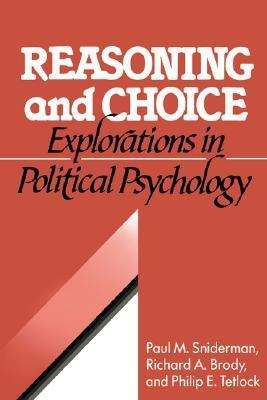
1991
First Published
3.78
Average Rating
324
Number of Pages
Drawing on a multitude of data sets and building on analyses carried out over more than a decade, Reasoning and Choice offers a major new theoretical explanation of how ordinary citizens figure out what they favor and oppose politically. Reacting against the conventional wisdom, which stresses how little attention the general public pays to political issues and the lack of consistency in their political opinions, the studies presented in this book redirect attention to the processes of reasoning that can be discerned when people are confronted with choices about political issues. These studies demonstrate that ordinary people are in fact capable of reasoning dependably about political issues by the use of judgmental heuristics, even if they have only a limited knowledge of politics and of specific issues. An important point is that both the well-educated and the less-educated use heuristics in political reasoning, but that the well-educated tend to employ different heuristics and take into account more factors in their consideration of issues.
Avg Rating
3.78
Number of Ratings
18
5 STARS
11%
4 STARS
61%
3 STARS
22%
2 STARS
6%
1 STARS
0%
goodreads
Author
Paul M. Sniderman
Author · 2 books
Paul Sniderman is a professor of political science at Stanford University (Stanford, CA), and Senior Fellow at the Hoover Institution and the Freeman Spogli Institute for International Studies. http://politicalscience.stanford.edu/...